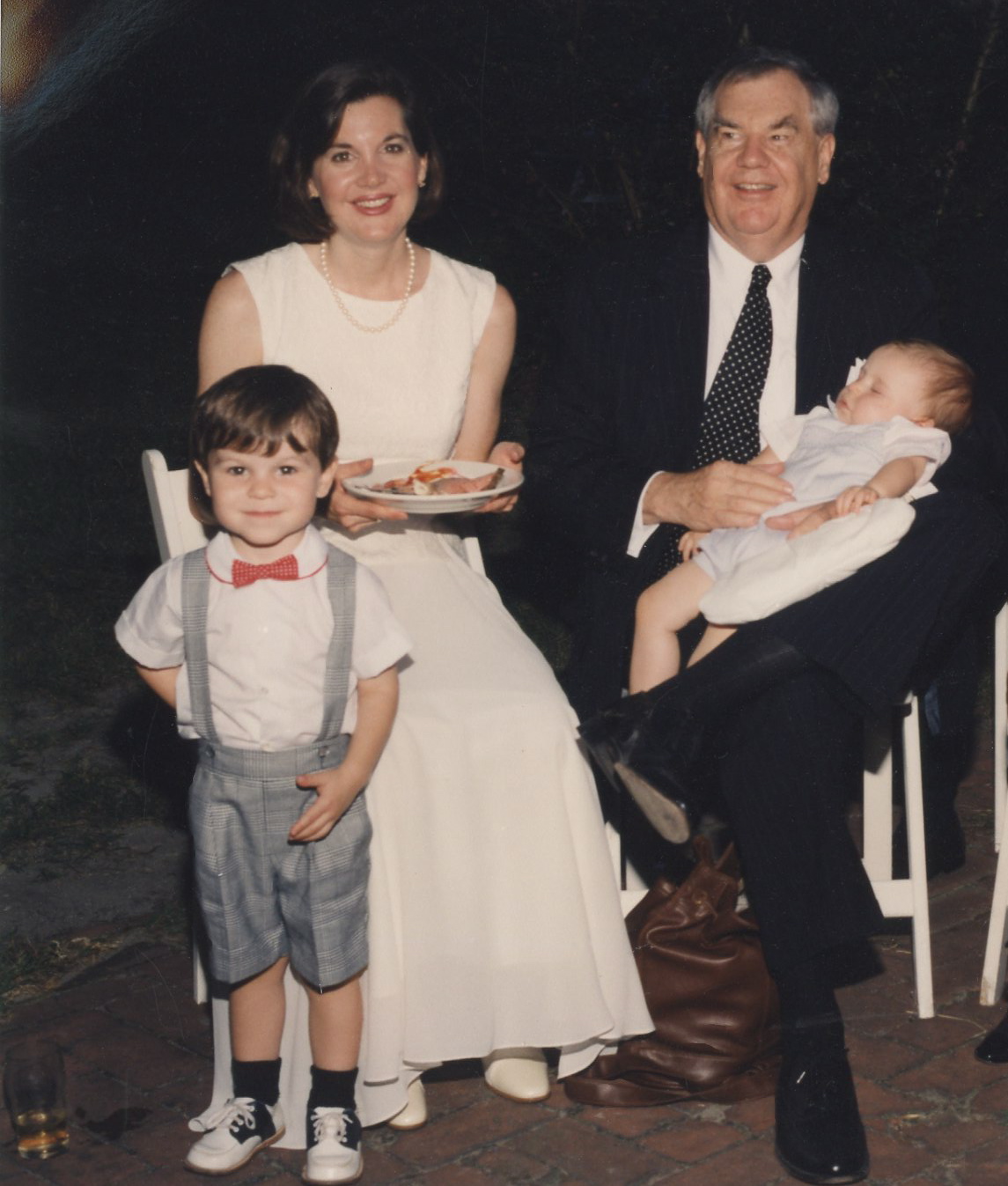When you weep for the sunrise: coping with grief
photo by Tom Hutcheson
By Pringle Franklin
 There comes a terrible, shocking moment in every life when you smack your face against a rough, brick wall. Without warning, you walk right into an unforeseen barrier: Cancer. Infidelity. Financial ruin. Loss and grief. You think of God, comfortably sitting on his golden throne, and you cry out, “How could you let this happen?”
There comes a terrible, shocking moment in every life when you smack your face against a rough, brick wall. Without warning, you walk right into an unforeseen barrier: Cancer. Infidelity. Financial ruin. Loss and grief. You think of God, comfortably sitting on his golden throne, and you cry out, “How could you let this happen?”
After all, you are a Christian. You’ve tried to be good; you’ve tried praying, volunteering, slipping money in the church plate. Although the Bible teaches that you cannot earn your way to heaven, you still feel entitled to at least an answer.
What the heck is going on?
When God does not reveal his intentions, when he makes no effort to explain your affliction, you may doubt. You might say, “Perhaps you’re not such a loving God after all. What if I don’t really know you?”
Next you wait, and you cry, and you stand frozen under a waterfall of drenching grief. You don’t feel his peace, you don’t sense his presence. Even scripture, with its comforting promise of God’s tender care, seems to mock you. When your curtain of destruction fell, God did not rescue you. The cancer is still there; the precious child is still buried; the marriage is still ruined. Amidst the anguish, perhaps your soul shouts: “God! Are you are even real?”
 You flinch, waiting for the lightning bolt or the thundering voice from above, but the only answer is silence, an awful, engulfing emptiness. Has God forsaken you? Does he even exist? Now you are sinking into double jeopardy: gasping from the brutal body blow of loss, you sense your very soul is floundering in doubt. Part of you feels like a bad person for lobbing rocks up at God, but another part knows: this is the Big Why of life.
You flinch, waiting for the lightning bolt or the thundering voice from above, but the only answer is silence, an awful, engulfing emptiness. Has God forsaken you? Does he even exist? Now you are sinking into double jeopardy: gasping from the brutal body blow of loss, you sense your very soul is floundering in doubt. Part of you feels like a bad person for lobbing rocks up at God, but another part knows: this is the Big Why of life.
If God is so great, why do we suffer? If God is so good, why does he allow evil to torture and torment the world?
The Bible points to man’s fall in the Garden of Eden as the genesis of suffering. Theologically true and yet, in times of grief, Christians yearn for more personal answers. Christians need reassurance that God has a loving plan for their lives. In times of trouble, wouldn’t a merciful God let us skip to the end of the book? We ache to see that there is a happy ending.
And we know that in all things God works for the good of those who love him, who have been called according to his purpose. Romans 8:28
In May 2000, when my father died of a brain tumor, I was not okay. I did not bounce back. I felt as if someone had jerked the lid off a cozy little box and, for the first time, I could see the black vastness beyond. For months, I hunted for the promised good, yet no silver lining appeared. Well-intended friends tried to stick Band-Aids of trite sayings on my bleeding trauma. That hurt. The only comfort came when people validated my deep sorrow, sharing tears, hugs, or empathy, without trying to justify God’s handling of the situation.
Rejoice with those who rejoice, and weep with those who weep. Romans 12:15
This is sage advice when others are grieving. Don’t pretend to have all the answers. Don’t spout off scripture. Just love them through it. There are no shortcuts or easy outs. When grief is fresh, the cost of God’s plan seems way too expensive. All things work for good….for those who love God. Jesus staggered under the full brunt of this Biblical promise as Roman soldiers mocked him, beat him, and drove spikes through his hands and feet. Being fully god yet fully human, Jesus had begged God to rewrite his story. Was there a way to win the world’s salvation without dying on the cross and enduring three agonizing days in hell while God hid his face and shut his ears? We cannot even imagine what Jesus endured.
“Abba, Father,” Jesus said, “everything is possible for you. Take this cup from me. Yet not what I will, but what you will.” Mark 14:36
Like Jesus, Job found himself in the pit of despair. Like Jesus, Job squeezed his hands  around the rope of God’s perfection to climb out. “Even if you slay me,” Job prays, “yet will I trust in you.” (Job 1:4) Job knew that God was much bigger than his life’s circumstances. Even if God chose to kill him, Job trusted that God was flawless. God was working for a greater good, even if Job suffered for it. There are always casualties in any battle, yet victory over Satan is what ultimately matters. Job was laid out after a bomb blast, a bleeding, legless soldier cut off by enemy fire, yet he continued to believe in his mission.
around the rope of God’s perfection to climb out. “Even if you slay me,” Job prays, “yet will I trust in you.” (Job 1:4) Job knew that God was much bigger than his life’s circumstances. Even if God chose to kill him, Job trusted that God was flawless. God was working for a greater good, even if Job suffered for it. There are always casualties in any battle, yet victory over Satan is what ultimately matters. Job was laid out after a bomb blast, a bleeding, legless soldier cut off by enemy fire, yet he continued to believe in his mission.
I am in awe of such faith.
When my father battled cancer for 18 months, I did not like the way God was doing his job. What’s more, adding to a complex cocktail of my emotions, I didn’t like myself for being resentful. I had always thought of God as my protector and my shield. So why had brain cancer transformed my vibrant, bon-vivant father into a pitiful invalid unable to tie his shoes?
After Daddy’s death, I expected God to show me a golden sunrise over my Grand Canyon of grief; yet as I peered over the rim, I saw only its enormous depth. God did not explain. God did not make things better. God felt very far away, and I was too hurt to crawl back. I wondered if my faith had died. I wondered who I truly was, who God truly was.
There is no way to by-pass this kind of foundational grief; you have to work your way through it step by weary step. For more than a year, God allowed me to kick and flail against His broken image. Whenever I prayed or attended church, I felt numb. In my darkest hours, my faith felt like a sham. Yet music can seep into our hearts like water spilling into tiny cracks in a rock. That is the only way to describe what happened to me.
One day, I was driving my car and randomly selected a CD of lively Christian music. It was the same old thing, yeah, yeah, yeah, praise God, ho hum, until the song “God is Good, All the Time” exploded in my ears. Tambourines shook; guitars hummed; and the singer’s joyful voice filled my van with radiant energy. As the song reached its feverish pitch, the singer was literally shouting that God was always good, no matter what happened.
Now, I had heard this song countless times. On sour days, I had even turned it off, feeling annoyed by the singer’s naive trust. Yet this day, this moment, the timing was right. The twangy, square-dance style music seeped into the hidden places of my rock wall of resistance; I yearned to feel like that man. I began to sing along softly. My voice and my conviction grew stronger the more I sang. Tears streamed down my face. My hands shook on the steering wheel. God is good, all the time. God is good. All the time. By claiming this truth, weeping it to the Lord, and expelling my cache of sorrow, I was able to accept my father’s painful, humiliating death as being within the wisdom of a perfect God.
This was the epiphany I had been seeking.
He lifted me out of the pit of despair, out of the mud and the mire. He set my feet on solid ground and steadied me as I walked along. Psalm 40:2
In the end, I came to accept something that, deep in my heart, I had already known: you cannot sound out all of life’s answers. You cannot point your compass north and hunt for God on his heavenly path, track him down in his holy lair and demand to see the universal blueprints.
He is in charge.
His thoughts are hidden. His ways are beyond our understanding. To believe in God, you must recognize your lowly place in the cosmic order. This is the pivotal point. You must either abandon your faith or change your view of your relationship with God. In spite of being saved by Jesus, in spite of being a child of God, you are not in a position to make demands on the Almighty. You can beg, you can plead, but you are ultimately called to surrender your will to God’s higher purpose.
Time eases the suffocating burden of grief. With the love and support of others, we can begin to mend our broken hearts and lives. Yet for me, the deepest healing and release of grief came from finally making peace with God.
Psalm 147:11 The Lord delights in those who fear Him, who put their trust in His unfailing love.
Fear not, for I have redeemed you. I have summoned you by name. You are mine. When you pass through the waters, I will be with you. And when you pass through the rivers, they will not sweep over you. When you walk through the fire, you will not be burned; the flames will not set you ablaze. For I am the Lord your God, the Holy One of Israel, your savior. (Isaiah 43:1-3)
In memory of John Benton Pipkin II (1935 – 2000)







13 Comments
Thank you for sharing your journey through, and ultimately out of, the quicksand pit that grief seems to be. Sadness over loss is a tribute to our love and affection for those no longer with us – but dwelling in the mire just breeds more sadness for those close. I always think of something that I heard long ago in Sunday school as a child …God wants us to go forth and be a light unto the world. Don’t let grief extinguish our ability to be a light to others. Thanks for making me remember Pringle. You are truly a light in this world bringing us closer to God.
Pringle, I love your new journey. You are exceptionally good at it. I know God will use you as a channel of blessing in many people’s lives. Thank you, Preston
Your writing is so much along the line of what the Spirit has been saying in my thoughts and dreams on facing the unexpected. I did not know the lines or the music in my dream where I was to sing the lead soprano in an opera. The music was w/ the pianist who was to arrive in 15 min when the opera was to begin. The audience was seated. I had never before seen the music or had a rehearsal. Thank you for answering my thoughts and dreams with the rest of the message.
Pringle, God bless you. There are so many life changing messages in what you wrote. I feel humbled by all that you have presented. In particular, this scripture is sticking out: “Even if you slay me,” Job prays, “yet will I trust in you.” (Job 1:4) You do embody this and I love you for who you are, and that you share yourself with us so that we can see you, and in doing so, see God.
Brought me to tears. Filled with much wisdom, truth and love. Nothing but Jesus and knowing Him can answer the suffering we all will face eventually.
Pringle, how beautifully expressed this is. Your father John [who was my brother-in-law] was such a big and jovial personality that it was indeed incomprehensible as his illness progressed and weakened his physical body, but not the love that he radiated. My mother, who also died of cancer, wanted this beautiful hymn sung at her funeral: “When through the deep waters I cause thee to go, the rivers of sorrow will not overflow, for I will be near thee thy troubles to bless, and sanctify to thee thy deepest distress” It’s true! He does, and He will.
Rom 12:15 such a blessing for us all.
amen
sd
Pringle, God’s word says, Endure hardship, do the work of an evangelist, fulfill your ministry( 2 Timothy 4:5). Thank you for allowing God to use you in this ministry; and for sharing your personal experience as you minister into the lives of others. We all experience grief at some point in this life walk, but I believe that God gives us the strength to be victorious. Peace and Blessings.
Thank you, Pringle, for your beautiful testimony of God’s love for us and his constant presence, even when it is difficult to feel Him. Though there will be sunsets in our lives, there will be sunrises to follow! It’s all in His time, and it is always perfect. Keep using your gifts as we all shall benefit.
Pringle–if I knew that your father died of a brain tumor I’ve forgotten. When I am tempted to be discouraged by the physical damage that I have experience from the treatment I received for the brain tumor I had, I try to focus on my blessings, one of the biggest being that I am still alive nearly 8 years after my diagnosis. (How’s that for a run-on sentence!) Thanks, Pringle for your wise words beautifully written.
Thank you, Suzy & Molly, for your meaningful comments. It is true that grief is an integral part of life, and the closer we walk with the Lord, the more he will prepare us for it. He is so good; he will shepherd us through these difficult times with gentleness and tender love.
Beautiful personal, theological reflection, Pringle. We will ALL walk this valley. No one escapes suffering and loss. Grieving is as much a part of life as celebrating, and they even intertwine on certain days. By grieving deeply, you were celebrating the profound love between you and your father. Thank you for sharing this universal, and yet extremely personal, experience.
Pringle, what a heartfelt, personal sharing of what we all need…peace with our Lord. Thank you for being used by Him and giving us the opportunity to join in the journey. God is good all the time.